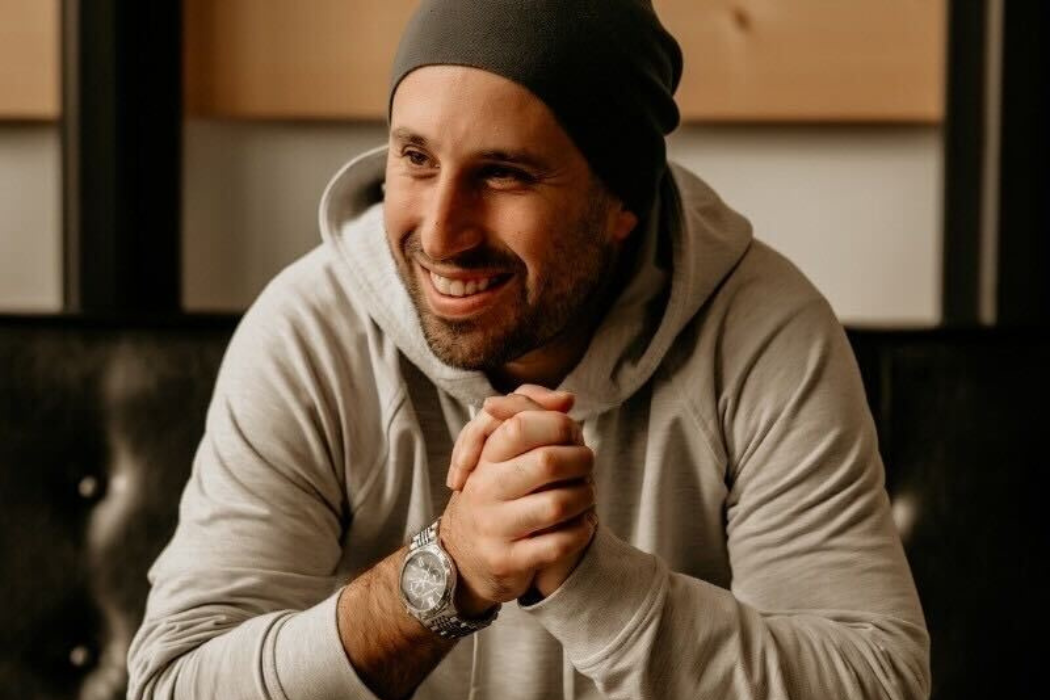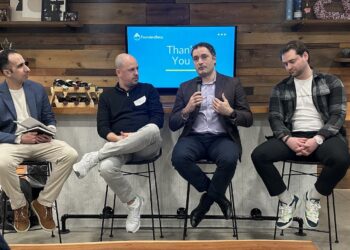
Waterloo-based tech company Gambit Technologies has rapidly emerged as an AI leader. With the recent launch of Ask Elyn, the world’s first AI companion for breast cancer support, Gambit Technologies aims to bring AI to help cancer support. AskEllyn has experienced massive growth since its launch in October. We sat down with Patrick Belliveau, Managing Director, to discuss their growth and AI.
What was the inspiration behind Gambit?
When ChatGPT hit the scene, we were mesmerized by AI’s potential. We saw its power to tackle major societal problems head-on. But as we took a look at the AI landscape, it was pretty clear that many solutions were chasing future problems, instead of solving the current one. So, we launched Gambit and got to work, creating impactful solutions in healthcare, sales, and support without worrying about traditional barriers like TAM or competition. AI is a whole new ballgame, and a small, diverse team can achieve incredible things. Early traction allowed us to focus on getting to market quickly. We built AskEllyn and other exciting products (soon to be launched) with the mindset that our blend of experience in sales, marketing, and tech could tackle any problem out there. Gambit was born from this drive to build rapidly and scale effectively to solve today’s problems.
Can you talk more about AskEllyn for breast cancer support? How does it work?
AskEllyn is a breakthrough tool launched on October 26th to help breast cancer patients and their families. It is based on the lived experience of Ellyn Winters-Robinson, who wrote the book Flat Please. The goal was to solve the real problem of breast cancer patients seek 24-7 empathetic support that wasn’t available in support groups or social media groups, which are not entirely safe spaces for getting shared lived experiences. So, with Ellyn we built a conversational AI that is inclusive, multilingual, non-dismissive, and free forever to help people get support in a way that worked for them.. AskEllyn engages users in meaningful conversations, providing support and information tailored to their needs. It operates around the clock, ensuring continuous support and instant knowledge. The AI’s empathetic and authentic personality has been a standout feature, allowing for a user to get the help they need in a voice that understands them.
We’ve seen the product growth with Ask Elyn. How has the traction been?
It’s been far greater than we imagined. With very little marketing or promotion, AskEllyn has been used in over 10 countries and is active 24/7. We’re also finding that it’s helping more than just patients, but the entire support network, for example spouses and children.
We’re really impressed with the return rate, with over 38% of users being return visitors without any retargeting. The reception from users has been incredible. Our favorite feedback?
“When I first used AskEllyn, I was blown away. The authenticity, the empathy — it was as if I was speaking to someone who truly understood.” As much as the data tells a great story, it’s amazing how many people we meet who have used or know someone that uses AskEllyn. It’s standing the test of time, answering questions to the standard we expect, never faltering. Our expectation is that this is just the beginning of its adoption worldwide.
What does AI for good entail?
While we’ve seen the news coverage of the negative sides of AI, we’ve experienced the positive. From our work with AskEllyn to additional projects that allow organizations to scale their support, we know that AI can and should be used for good. So much so that we’re launching a Changemaker Venture Studio to enable changemakers to rapidly build production-ready AI solutions ready for primetime. Launching in September 2024, this initiative will empower individuals and organizations to create AI tools that have a positive social impact. That’s our view on AI for good. You can learn more here in a video describing our initiative.
Where do you see conversational AI evolving in the next five years?
We might be a bit biased, but being on the ground floor and seeing the capabilities of the current models, combined with future advancements, we see conversational AI as the primary platform for engagement. It will be where every conversation starts, enabling humans to do more, and AI to help them be their better selves. AI will become more integrated into daily life, providing seamless and lifelike interactions across various platforms like text, WhatsApp, email, and web. It will enable businesses to scale support and services, optimize operations, and drive deeper customer engagement and loyalty. But the part we’re most excited about is the potential for personalized support at scale, particularly in health-specific services. We believe, based on our experience with AskEllyn, that we can give people they support in any language in any country to scale support for organizations and health providers.
What trends do you see in the healthtech space using AI? What are some challenges?
First and foremost, conversational AI will become a breakthrough tool in supporting healthy behaviors and ensuring proper use and adoption of key therapies and medications. We see the lack of knowledge and support between doctor visits or treatments as a major cause of poor health outcomes.This lack of sustainment between appointments, if solved, is a massive opportunity. Healthtech will use AI to better support people at every stage, ensuring that treatments and solutions are more readily adopted. Secondly, when paired with appropriate data structures and information, your healthcare journey becomes hyper-personalized and meaningful. You can now wrap a set of exercises or medications into your own profile, supported by an empathetic AI tool that understands you and can better support you. And it can be done with the utmost privacy and security. There will be challenges, particularly around major organizations taking the perceived risk of launching these tools versus falling on legacy solutions. We believe legacy thinking will be the biggest barrier to getting to the next phase of AI adoption.
Do you have any advice for founders that are working on GenAI products?
Yes indeed. First, try to solve a real problem or pain point today that isn’t focused on replacing humans. Solve a problem that makes the humans involved in it better. Enable them to do more, to scale further, and to have time to focus on the highest value items. Secondly, start building. The best way to understand a problem is to build for it. When you have a product or solution, good things happen. And don’t solve a current model limitation. Make sure what you build is not something that will be a feature that a large player will release in the next few months. Thirdly, while it’s about the tech, it’s actually not about the tech. Your core differentiator is your ability to meaningfully make AI work for a good cause. While that requires a solid tech layer, it’s more about your ability to be creative and to solve problems with this creativity. Solve problems by building creative solutions. That’s how you’ll win.
What’s next for Gambit?
We’ve got a lot in the hopper. We’re launching an amazing AI tool in the field of law, slated for an official launch in August 2024 with free access for three months. We’re also working on a caregiving tool with a major government organization, scheduled for public launch in October 2024, with the potential to scale nationally and we just launched an advanced digital assistant for our partner Streetwise for GeoTab Connect 2025, enabling real-time sponsorship solutions. Additionally, we’re embarking on a massive healthcare venture that will change how healthcare providers interact with patients.And, of course, our Changemaker Studio is set to kick off in September 2024. So much going on. A lot of energy and excitement. We just keep building and staying focused on bringing conversations to life with AI. If we keep doing that, we’re confident we’ll build something special.







